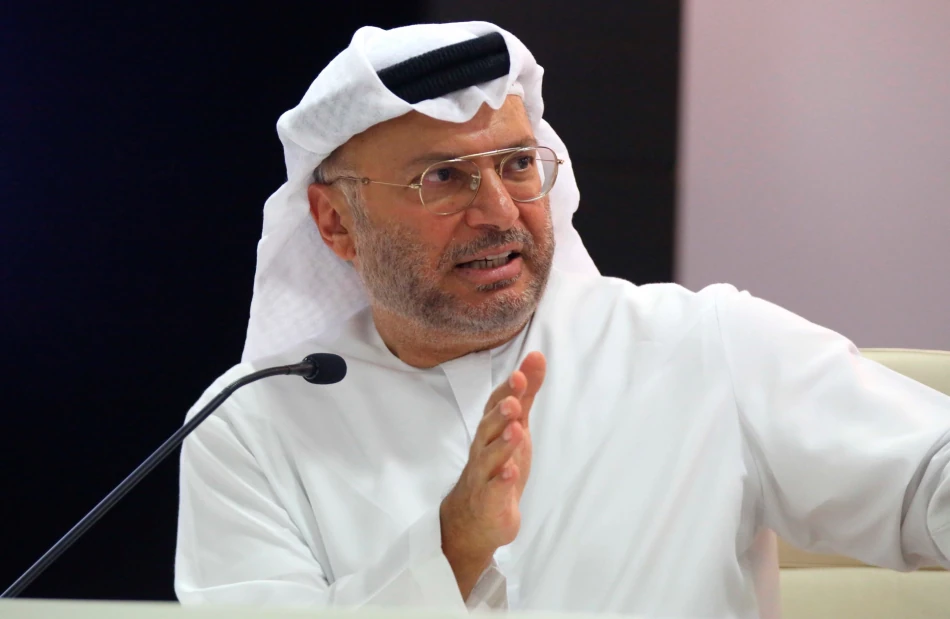
Qirgash Calls for Rational, Wise Discourse to Extinguish Flames of Strife in the Region
UAE Senior Diplomat Calls for Regional Restraint Amid Middle East Tensions
Dr. Anwar Gargash, diplomatic advisor to the UAE President, has issued a pointed critique of inflammatory rhetoric in the Middle East, urging regional leaders to embrace rational discourse over emotional incitement. His comments signal the UAE's continued positioning as a stabilizing force amid escalating regional conflicts and reflect broader concerns about destructive political narratives that have plagued the region for decades.
A Call for Wisdom Over Provocation
In a social media post on X (formerly Twitter), Gargash condemned what he described as "reckless incitement that inflames emotions and indulges in self-flagellation." The senior diplomat emphasized the urgent need for "rational and wise discourse that extinguishes the fires of discord and addresses the errors in thinking and practice that have brought the region to its current state."
The timing of these remarks is significant, coming as the Middle East grapples with multiple conflicts and political upheavals that have created an atmosphere of heightened tensions and polarized public discourse.
UAE's Strategic Diplomacy in Focus
Positioning as Regional Mediator
Gargash's statement reinforces the UAE's long-standing approach to regional diplomacy, which has consistently favored pragmatic engagement over ideological confrontation. This philosophy has enabled the Emirates to maintain relationships across traditional divides, from normalizing ties with Israel through the Abraham Accords to maintaining dialogue channels with Iran despite tensions.
The UAE's diplomatic strategy stands in stark contrast to more confrontational approaches adopted by other regional powers, reflecting Abu Dhabi's calculation that economic prosperity and stability require de-escalation rather than inflammatory rhetoric.
Historical Context of Regional Discourse
The diplomat's critique of "self-flagellation" appears to reference a pattern of destructive political narratives that have characterized Middle Eastern politics for generations. This includes the tendency toward zero-sum thinking, sectarian polarization, and the weaponization of historical grievances that have hindered regional cooperation and development.
Implications for Regional Stability
Economic Considerations
From an investor perspective, the UAE's emphasis on rational discourse reflects its economic interests in maintaining regional stability. The Emirates has built its economic model on being a safe haven for business and investment in an otherwise volatile region. Continued instability and inflammatory rhetoric threaten this positioning and could impact foreign direct investment flows.
The UAE's approach mirrors successful models in other regions, such as Singapore's role as a neutral hub in Southeast Asia, where pragmatic diplomacy has facilitated economic growth and regional stability.
Broader Regional Impact
Gargash's call for addressing "errors in thinking and practice" suggests a recognition that the current regional order requires fundamental reassessment. This aligns with broader trends toward pragmatic governance seen in Saudi Arabia's Vision 2030 and other Gulf states' diversification efforts, which prioritize economic development over ideological confrontation.
The emphasis on extinguishing "fires of discord" also reflects growing awareness among Gulf leaders that continued regional instability threatens their long-term development goals and international standing.
Looking Forward
The UAE's diplomatic messaging indicates a continued commitment to positioning itself as a voice of moderation in regional affairs. This approach has proven economically beneficial, helping the Emirates attract international business and maintain its status as a regional hub despite ongoing conflicts.
However, the effectiveness of such calls for restraint will ultimately depend on whether other regional actors embrace similar approaches to discourse and diplomacy, particularly as the Middle East faces ongoing challenges that require coordinated responses rather than inflammatory rhetoric.
Most Viewed News

 Sara Khaled
Sara Khaled






